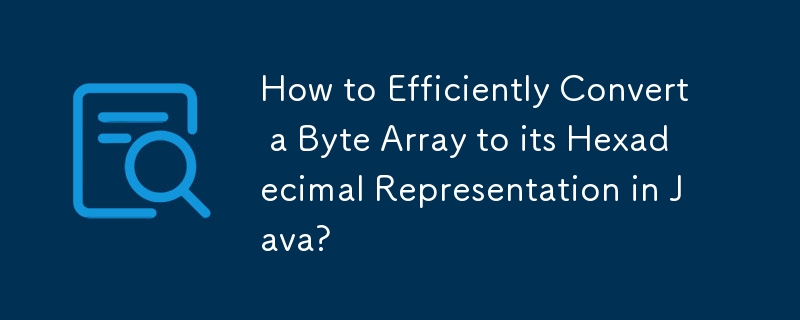

How to Convert a Byte Array to Hexadecimal in Java
Converting a byte array to its hexadecimal representation is a common operation in various programming scenarios. In Java, this conversion can be achieved using various techniques.
Method 1: Using String Concatenation and String.format()
One straightforward approach is to iterate through each byte in the array and convert it to its hexadecimal string representation using the String.format() method. This method formats the byte as a two-digit hexadecimal number with leading zeros if necessary.
byte[] bytes = {-1, 0, 1, 2, 3};
StringBuilder sb = new StringBuilder();
for (byte b : bytes) {
sb.append(String.format("%02X ", b));
}
System.out.println(sb.toString());This code will print the hexadecimal representation of the byte array as "FF 00 01 02 03".
Method 2: Using a Custom Hex Conversion Function
Alternatively, you can create a custom function that directly converts a byte array to a hexadecimal string. By defining your own function, you have more control over the formatting and can potentially optimize the conversion process. Here's an example function:
public static String bytesToHex(byte[] bytes) {
StringBuilder sb = new StringBuilder();
for (byte b : bytes) {
sb.append(String.format("%02X", b & 0xFF));
}
return sb.toString();
}This function uses the bitwise AND operator (&) to ensure the byte is treated as an unsigned integer, removing any sign extension issues.
Additional Considerations:
The above is the detailed content of How to Efficiently Convert a Byte Array to its Hexadecimal Representation in Java?. For more information, please follow other related articles on the PHP Chinese website!




